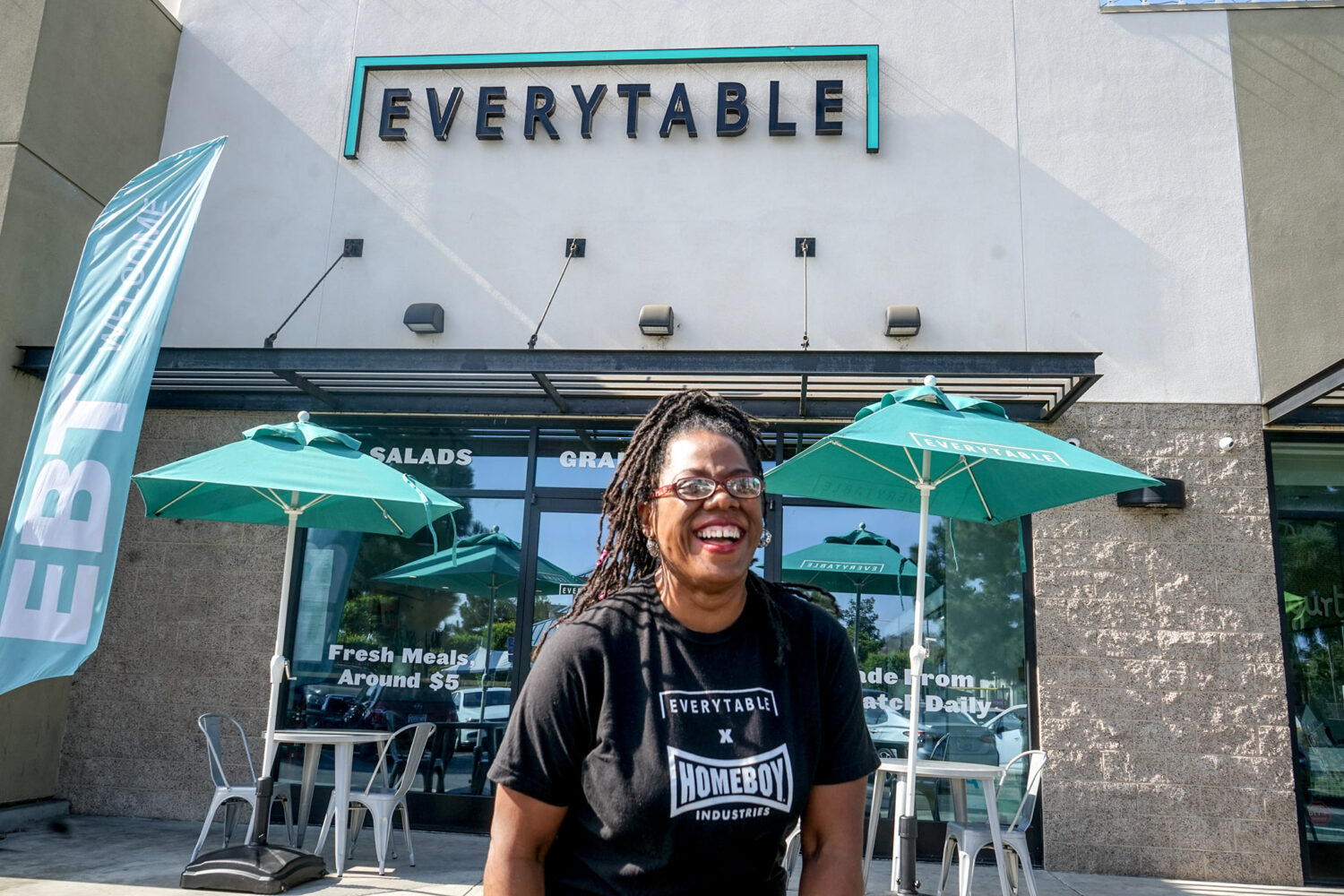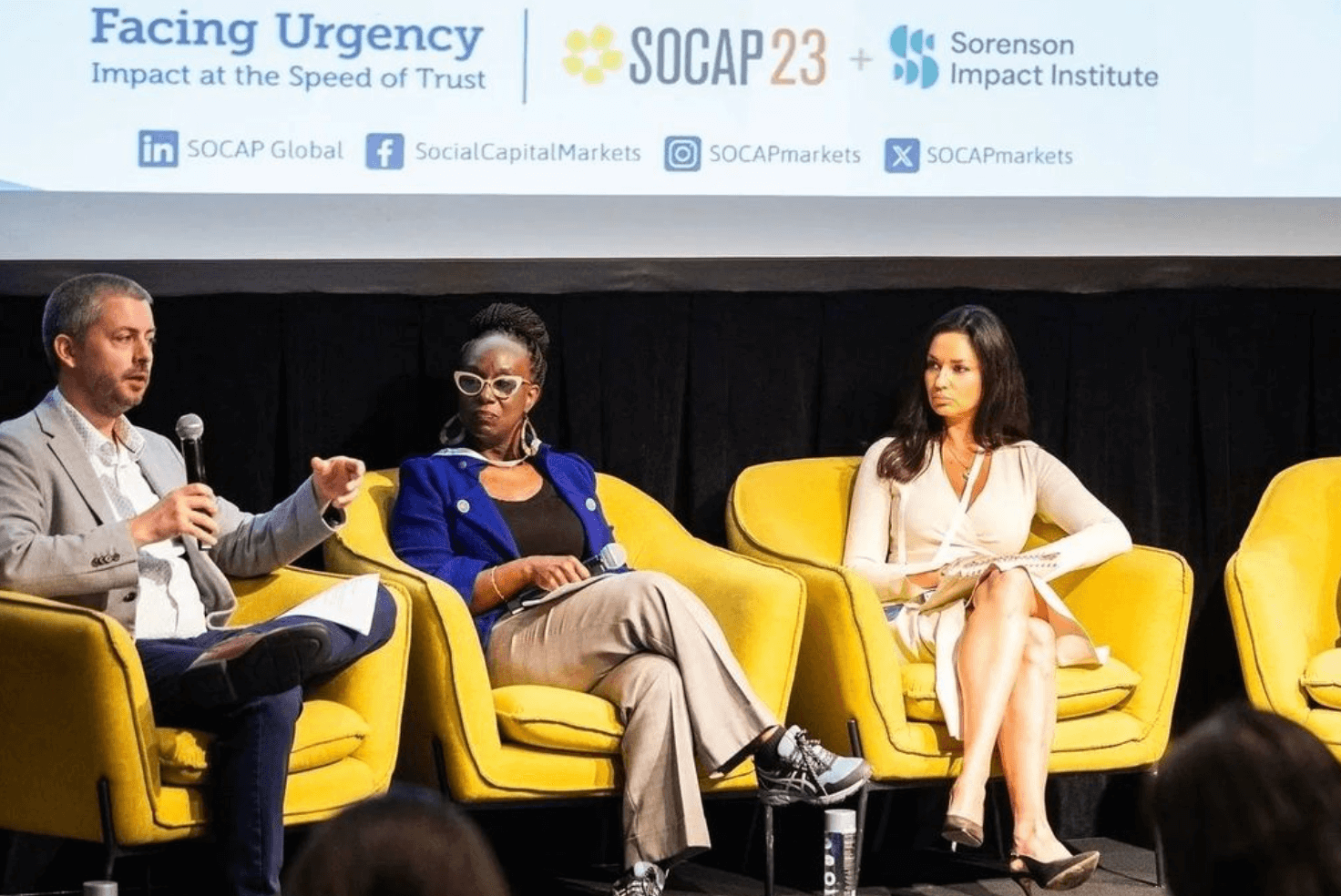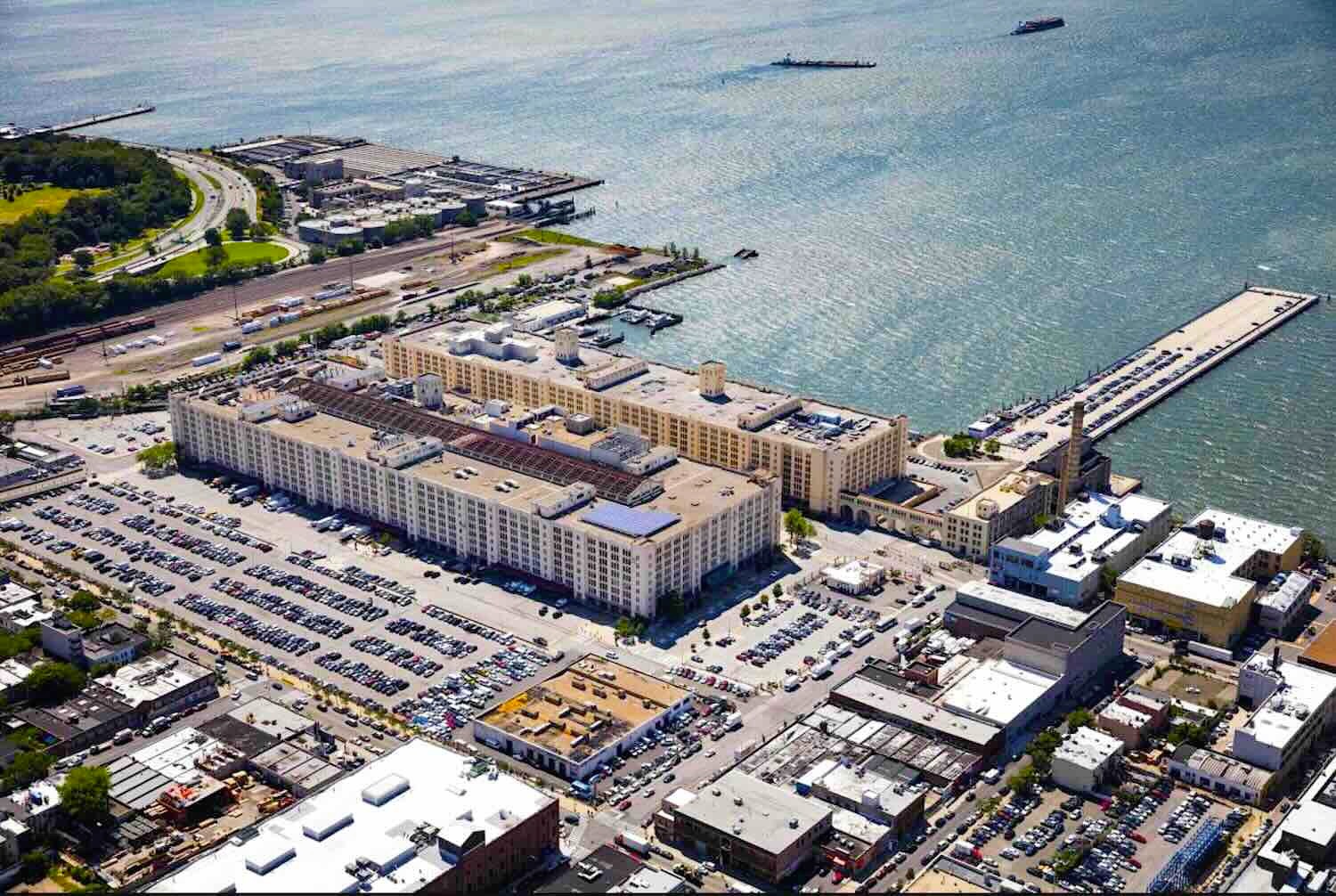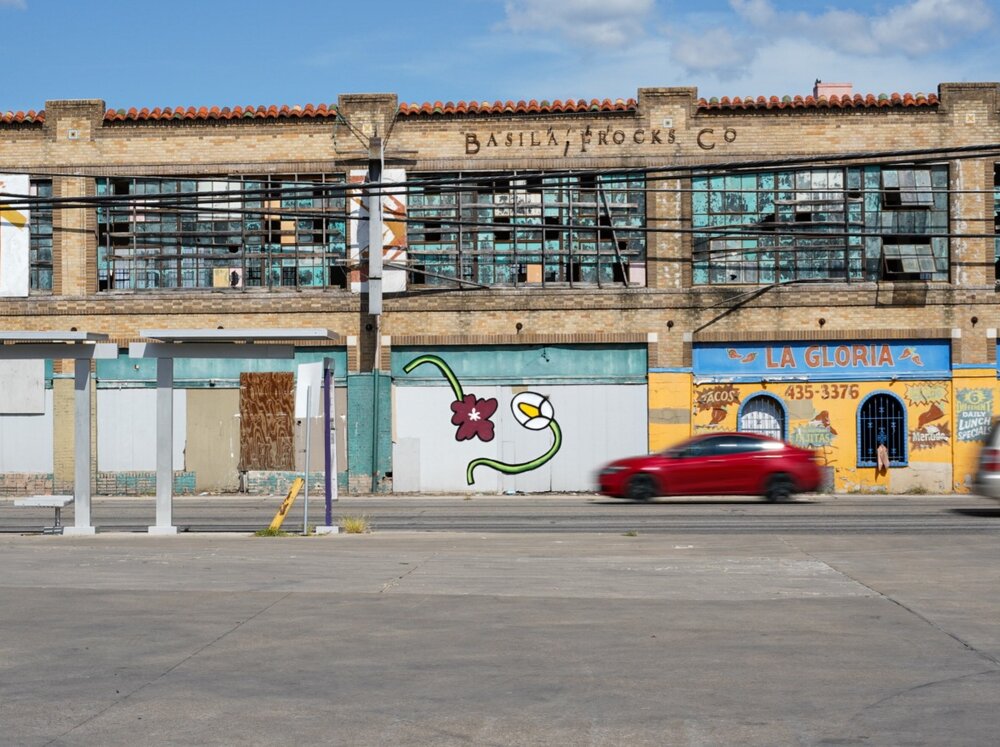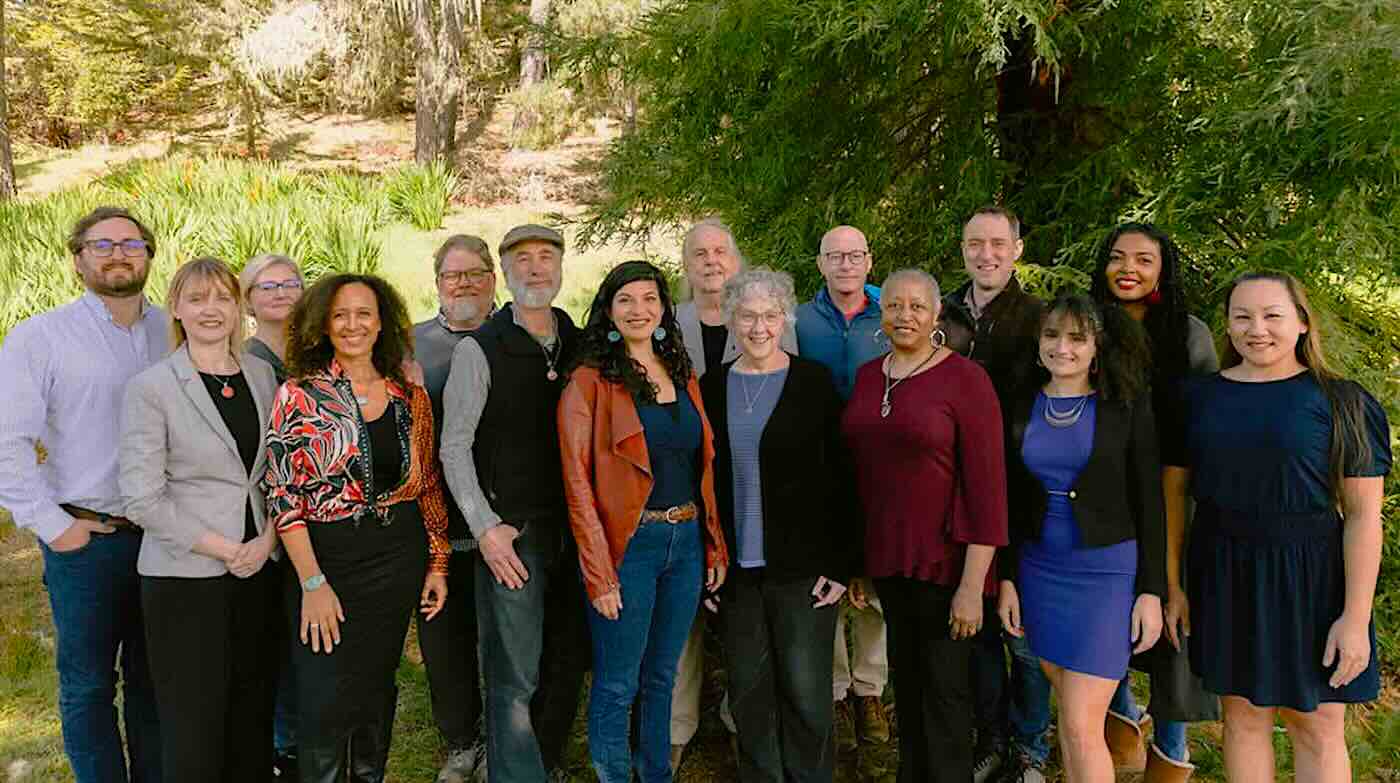ImpactAlpha, May 18 — Employee ownership is having a moment. One promising strategy: democratizing the franchise model to widen pathways to ownership and wealth creation.
The largest franchise segment, the $276 billion fast-food market, offers ripe opportunities for wealth-building for people of color, who make up the majority of workers but just a fraction of franchise owners.
Everytable, a fast-casual chain that emphasizes affordable, nutritious meals in “healthy food deserts, is raising a $20 million Social Equity Franchise Fund to offer loans averaging $500,000 apiece to 40 food entrepreneurs of color. Everytable’s Social Equity Franchise initiative pairs paid training programs with loans to convert its stores into franchises owned by people of color.
The Los Angeles-based chain is following food franchisers like Denny’s, the diner-style restaurant chain, which is working with the Multicultural Foodservice & Hospitality Alliance to create 100 Black-owned franchises. In 2021, McDonald’s launched a five-year, $250 million initiative to create franchise ownership opportunities for entrepreneurs of color.
Everytable’s “model is extremely promising for owners of color, their families, and communities. We’ve seen successful franchises build wealth for owners,” Cynthia Muller of Kellogg Foundation, an early investor in Everytable, told ImpactAlpha.
“For us to be able to invest in a company that leverages this approach and to promote access to healthy, affordable and culturally relevant food – it was a no-brainer.”
Everytable last week raised $12 million in senior debt for the fund from a syndicate of community development financial institutions led by Reinvestment Fund, and program-related investments from foundations, including the W.K. Kellogg Foundation, Annenberg Foundation, California Wellness Foundation and Dignity Health. A $3.2 million loan guarantee from the Community Investment Guarantee Pool will serve as first-loss capital for the senior debt portion.
“If we can successfully deploy this capital — knock on wood — and give our investors a good return on their capital, and help other investors understand that this is a safe and investable model over the long term, then we can just keep doing this until there’s tens of thousands of Everytable franchises across the country, with all of them owned and operated by franchisees of color,” Sam Polk, Everytable’s co-founder and CEO, told ImpactAlpha.
Healthy food equity
Polk and his co-founder David Foster launched Everytable in 2016 to bring healthy and nutritious fast-food to underserved communities. The Los Angeles-based company started out in low-income communities and communities of color like Compton, Calif., where fast-food chains like McDonald’s, Burger King and Taco Bell dominate.
The fast food industry has a checkered history with communities of color, and some companies have been dogged by charges of discrimination against Black franchisees.
(For more on the fast food industry’s checkered history with Black communities, see White Burgers, Black Cash: Fast Food from Black Exclusion to Exploitation, by Naa Oyo A. Kwate).
Everytable’s menu of ready-to-go meals includes salads, wraps and sandwiches, and beverages such as sparkling water and kombucha that are priced based on the neighborhood’s median household income. In Queens, N.Y., where Everytable opened its latest store in March this year, most meals cost between $6-$9.
“The reason fast-food restaurants do well in underserved communities is not because there’s a disproportionate amount of demand for burgers and fries, or fast food,” Polk says. “The reason they’re the only restaurants in food deserts is because of the price point, where you can get a whole meal for $6 or $8.” In New York, he says, most healthier options start at $15 or $20.
Everytable also provides low-cost ready-to-go meals for government agencies, homeless shelters, medical institutions and nonprofit customers.
Everytable has been piloting the Social Equity Franchise initiative since 2020 by training its store managers, assistant managers and other hourly-wage workers to become franchisees. Dorcia Whitebrake, a Black mother of three from South LA and Everytable store general manager, became the first franchisee in January 2021.
One of the franchisees in Everytable’s pipeline is Dee Adimora, an Everytable store manager, who previously worked as a store manager at fast-food restaurant chain Carl’s Jr. Restaurants for 25 years, but couldn’t afford the startup capital to launch her own franchise. At Everytable University, she completed a series of development classes and received coaching to prepare her to be a franchise owner.
“Becoming a franchise owner is an opportunity to become more deeply involved in the business, grow financial stability, and work on a legacy to leave behind for my family,” Adimora told ImpactAlpha.
Upskilling entrepreneurs
Everytable has already built a deep pipeline of potential franchise owners, “talented entrepreneurs and operators, who if not for the racial wealth gap, would have been the ideal franchisees,” Polk says.
Everytable University’s one-year, fully-paid training program provides on-the-job and executive business leadership training to its employees to become the first cohort of franchisees in the fund.
“We do extensive coaching for them not just on operations, but on all parts of running a business, whether it’s accounting, marketing or community involvement, and even leadership and public speaking training,” says Polk.
Graduates in the program, most of whom are women of color, will have the opportunity to apply to own and operate their own franchise through the ownership fund. Loans from the fund cover 100% of the capital required to purchase an Everytable store, which costs $250,000 on average. The loans can also cover the salary of franchise owners in the first three years to ensure they’re able to focus solely on running a profitable business.
“As you can imagine, one of the challenges with starting your own business is that it may take a couple of months for the business to get off the ground,” Polk says.
San Diego-based impact investor Mission Driven Finance, which will manage the Social Equity Franchise Fund, plans to start making loans this summer.
Franchise owners will begin paying back loans once their business is profitable. “We’re attempting to keep the interest as low as possible based on cost of capital,” likely in the high single-digits, Mission Driven Finance’s David Lynn told ImpactAlpha. A “step-up” lets franchisees start with lower payments that increase over time as they get their footing.
Loan terms
Startup capital is one of the of the major barriers to people of color and women becoming franchise owners. For McDonald’s, franchise applicants are required to have a $500,000 minimum of cash available, and other fees amount to upwards of $1 million. Operating a McDonald’s franchise is even more costly.
“The way McDonald’s and others do franchises, it’s not always friendly,” says Lynn. “But on the other hand, when successful, McDonald’s has created wealth for a lot of people. The Social Equity Franchise Fund is how we do that in a friendly and supportive, incredibly inclusive and equitable fashion.”
With a deep pipeline of potential franchise owners, Polk said Everytable plans to target larger and more institutional investors and banks “to basically extend the franchise loan line of credit to $100 million or $200 million.”
Everytable’s goal is to raise more capital for the Social Equity Franchise Fund to manage 300 franchise stories in major metro areas in the U.S. in the next four years.
Catherine Howard of Community Vision, which joined the syndicate of CDFIs with a $4 million commitment called the fund “a powerful new model that will allow hourly-wage workers to become business owners.”
“We know that business ownership is one of the most powerful vehicles for building wealth,” she said in a statement. “This fund helps open doors of ownership among those who are usually locked out.”

